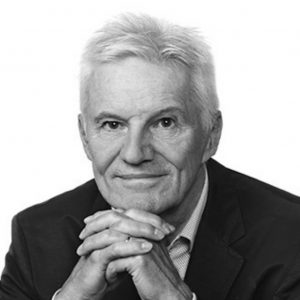
Kim Temple
If you’re writing songs, and getting somewhere with it, at some point you might consider the possibility of signing a deal with a music publisher. So it’s a good idea to understand what a publisher actually does for you.
“It’s important to remember that a publisher can be part of an artist’s team, along with having a manager and a booking agent and a label and a publicist,” says Kim Temple, President of High Priestess Publishing, a Toronto-based independent music publisher that represents Zaki Ibrahim and Witch Prophet, among others.
“The deal is, okay, I have a catalogue of songs that needs some kind of management. I don’t know if I’m collecting all the royalties I should be collecting. I don’t know if I’m registered properly all around the world for my copyrights, and I don’t really pitch for myself. I don’t have the know-how or connections to music supervisors to pitch for synch placements – maybe I need a partner in publishing who can manage that for me.”
That’s the business consideration. Temple says there’s also the creative aspect. “If they’re at a level where they’re ready to start looking for collaborators, and want to do some co-writing, or if they want to pitch their songs to other artists – that’s a good time to bring a publisher in,” she says. “Or maybe they want to do some songwriting development, and travel, and go to song camps.”
For Daniel Lafrance of Éditorial Avenue – winner of the Publisher of the Year SOCAN Award at the 2020 SOCAN Gala in Montréal, and author of the book Après la disruption. Innover en édition musicale – collaborations and co-writes are increasingly important. “It really helps artists to progress rapidly and expand their musical horizons to evolve in new directions,” he told us during a video interview to celebrate his 2020 SOCAN Gala Award. “A publisher’s role when it comes to this specific aspect of artist development is to find people with whom they’ll have a good connection, and usually, that leads to excellent results. I strongly believe in that. Artists are full of talent, but they also have weaknesses for which co-writes can easily make up.”
Prime negotiators
The notion to keep in mind is that publishers, first and foremost, are song exploiters: they strive to get the most monetary mileage out of a song, whether it’s through recording, live performance, synchronization (or “synchs,” placement in commercials, TV shows, films, videogames, digital platforms, etc.), or through any other medium where music is being used for monetary gain.

David Quilico
The value that’s potentially generated by a song placement can be substantial – and if you’re a writer, being a novice negotiator can bite you in the butt, as Donovan Woods discovered all too well when he initially self-published under his own Meant Well imprint.
“I was just writing songs on my own and I had very little understanding of anything,” says Woods, who recently signed with Concord Music Nashville, after spending three years at Warner Chappell Nashville. “I remember I licensed something to TSN to be used during the intro of a Grey Cup game for something like $104. I didn’t know what I was doing. I had no idea. I was sort of doing it on my own.”
Music publishers are able to negotiate fair market value for synch placements, and know what license fee a song should command in any given medium based on terms, use, and territory. They have institutional knowledge of synch licensing precedents.
David Quilico, the Vice-President of Creative at Sony Music Publishing Canada – the music publisher home to Pitt Tha Kid, Lights, Elise LeGrow and 49 other Canadians – similarly explains what a publisher does for the songwriter.
“Our songwriters’ come first,” says Quilico. “We’re here to support you [the songwriter] and pride ourselves on creating and bringing opportunities with expertise beyond those that already exist on a global level. There’s not really a hat that we don’t wear on any given day, whether it’s helping them [the songwriters] align their team members, helping them find a label partner, being an objective sounding board for their songwriting, and songs, creative song pitching, arranging collaborations and next level admin services. It’s big-picture career development and support for our songwriters, all the time.”

Daniel Lafrance
For his part, Daniel Lafrance believes that even if the younger generation of music creators sometimes tend to believe that they can do without middlemen such as a publisher – because of their perfect mastery of the technological tools and multiple platforms at their disposal – they would still be depriving themselves of important expertise. “I truly believe artists who don’t surround themselves with a team will miss out on a lot of things,:” he says. “Artists can’t become specialists in publishing, social media, marketing, and everything else they need to master. They would lack the necessary insight, and be distracted from their main goal: making music. I think that’s what they need to focus on, while a team of trusted people takes care of the rest.”
A working partnership
As much as both indie and major publishers are willing to go to the mat for their songwriters, it’s a two-way street: the onus is on the songwriter to do a great deal of the heavy lifting – i.e., writing the right songs – in order for publishers to be able to take them to the next level.
You can’t rest on your laurels in any publishing partnership: you have to be entrepreneurial and a go-getter. “I look for and appreciate extraordinary talent, and who they are as people,” says Quilico of the qualities he expects from his writers. “They show up and they bring their best. We take that to heart and do the same.”
Vince Degiorgio, president of indie publisher CYMBA Music, whose 26-member roster boasts Reeny Smith, Monowhales, and TallTale, says writers also need to be inquisitive when choosing a partner.

Vince Degiorgio
“You need to ask the right people either the right questions, or the wrong questions, to find out what your fit is,” says Degiorgio. “You need to know if you have the experience to work it. And the other side is, if you’re a songwriter, you have the opportunity to understand what your publisher is really trying to do for you. Because when you get a publishing deal, that’s when your real work begins. There’s nothing automatic when you have a publisher.”
Degiorgio, a writer himself, says it’s good to identify your needs upfront. “One of the things Dennis Ellsworth, one of our writers, said he wanted in a publisher was someone could help him do the things that he couldn’t do on his own.
“So if your goals are to achieve the key points of major synchronizations, or in the beginning, micro-synchronizations, it’s extremely important to have someone who can assist you, who has also had the experience of growing in that world. Putting you together with writers that you want to write with. Those are kind of the key reasons, to me, to have a publisher.”